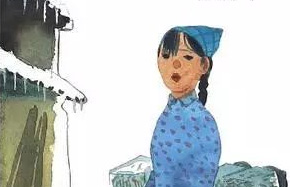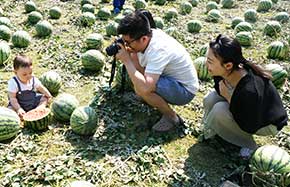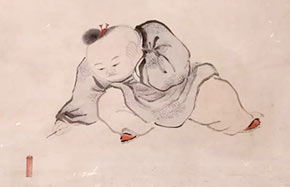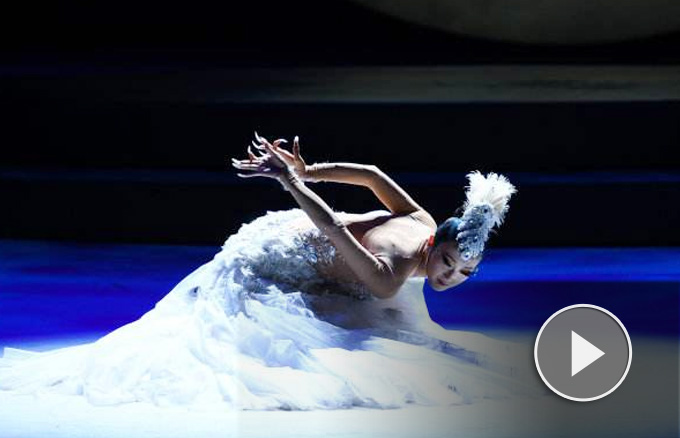The culture of Chinese small living goods
Chinese Brush Pen Holders
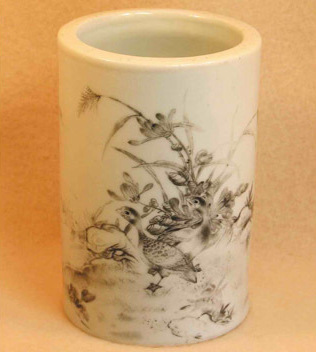
A brush pen holder is a container for holding brush pens when they are not in use. It has been a favorite stationery item of scholars and men of letters since ancient times. Observing its useful and decorative qualities, one can easily see why.
Most brush pen holders are tube-shaped, some with openings like plum bosoms, sunflowers, clouds, book scrolls and irregular octagons. The decorative patterns on the surface are usually paintings featuring some scholars' get-together or a big fish standing on a turtle (symbolizing "the God of Literature and Exams, bringing good luck"). Paintings featuring landscapes, flowers and birds are also used. The following are some beautiful and unique brush pen holders from different dynasties.
Bamboo Carved Pen Holder Featuring a Maid Stealing a Look at a Book Scroll
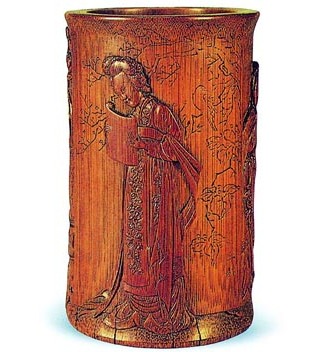
This is the signature work of Zhu Sansong, a renowned bamboo sculptor of the Ming Dynasty. The illustration is a scene from Romance of the West Chamber, a famous Chinese play. The carving skills involve various degrees of depth and elaborateness, producing a multi-layered effect on the whole picture.
Bamboo Carved Pen Holder Featuring Beautiful Ladies
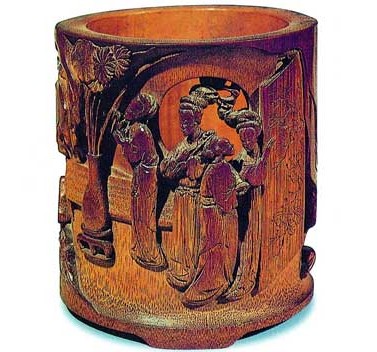
Carved by Zhu Sansong of the Ming Dynasty, this pen holder is a work that combines low relief and high relief carving skills with a shallow carving technique.
Carved Lacquerware Pen Holder Featuring the Painting of Holding a Qin to Visit a Friend
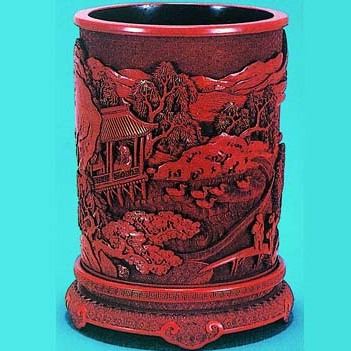
Visiting friends is a common subject of Chinese paintings. The outer surface of the pen holder is engraved with mountains, rivers, pavilions, towers, human figures and trees. On the small bridge, there's a young servant holding a qin (a seven-stringed plucked instrument in some ways similar to the zither) among other passersby. The subject of the painting is visiting a friend with a qin.
Brush-Holder with Figures
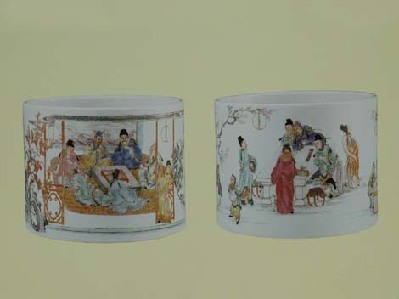
The brush-holder has a circular mouth, an upright body, and a flat base. Simple and elegant, it is made of refined white clay with a pure, smooth glaze. The scene painted on its surface is of a dinner party held on a spring evening, depicting the life of Li Bai, the great poet of the Tang Dynasty, and his friends. All the figures, rockeries, trees and flowers were outlined first and then filled with soft colors. A six-character inscription in regular script circled with blue lines can be seen inside the ring-shaped base, reading "Made during the Yongzheng Reign of the Qing Dynasty".





